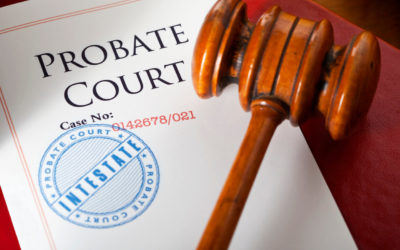What should you do to prepare for an inheritance?


Written by Jesse Bifulco
If you are about to get an inheritance, you should get good advice and learn how to prepare for an inheritance. Read this article to learn:
- What is the riskiest way to inherit property
- What can be done to avoid losing inherited property
- What are some tax implications for inheriting property
- How to spot good advisors for your inheritance
- How to avoid losing your inheritance



Good Counsel Protects and Helps you Prepare for an Inheritance
Anyone expecting an inheritance should get advice from asset management professionals. These include an estate planning attorney, a CPA, a financial planner, and an insurance professional. This article outlines and explains what to do if you’re expecting an inheritance. Also, this article gives tips for how to select the appropriate inheritance advisers or create your own virtual Family Office.
an estate planning attorney can advise you about how to protect and prepare for an inheritance

Is it Appropriate to Talk to Mom or Dad About Your Inheritance?
Getting an inheritance is a sensitive subject. The donor or benefactor (the person giving the inheritance) likely cares about the donee (person getting the inheritance). Otherwise they wouldn’t be making the gift. Unfortunately, typically, an inheritance is made when the donor dies. Most people do not like to think about their own death. But if the donor brought up the subject, that means the donor is willing to discuss the matter. If the person giving the inheritance is ready to discuss the practical implications it is a good opportunity to do some estate planning. You should start to prepare for an inheritance.
What Are the Practical Implications of Getting an Inheritance?
AND
What questions you should ask when you prepare for an inheritance.
The practical implications of getting an inheritance are legal and financial. Those two areas overlap. Creditor protection and asset protection are legal issues. For instance, is the person getting the inheritance about to go through a divorce? Or going through a divorce? Do they own their own business? Are they in a high risk profession? Do they have partners? What about debts? Does the person getting the inheritance have large debts? How old are they? Can they manage money? Do they have kids who are about to apply to go to college? Do they have enough money to retire one day? Or is this inheritance a nest egg for their retirement? How long does this money have to last them? All of these questions are going to dictate how you should get or prepare for an inheritance.
What is the riskiest way to inherit property?
Getting money or property outright, in your own name is the riskiest way to inherit. Prepare for an inheritance and avoid risk.
Tax Issues of Inheritance
Another financial consideration is tax. For instance, what is the gift tax impact of the gift of getting an inheritance? What is the income tax impact of getting an inheritance? Is there a more tax-efficient way to make the transfer from one generation to another? There is an inheritance tax in Maine. There is a gift and estate tax in the United States. Inheritance and gift tax law are complex issues. Although most estates are under the state and Federal limits to be taxed for inheritance and estate and gift taxes, the rates are high. So if you are subject to inheritance or estate and gift taxes, you should find out before its too late to plan against them.

Other Tax Issues of Inheritance
The other issue to be aware of is capital gains taxes. If you are given property during the life of the gift giver, you get their cost basis. Investment decisions are also financial. For instance, how should the inheritance be invested? What are the short term financial needs of the person getting the inheritance? What are the long term financial needs of the person getting the inheritance? Retirement? College tuition? A new business venture? A good financial advisor, and financial planner can project what your income needs are likely to be. They can show you how much you should save and invest, and how much you can afford to spend.
A virtual Family Office can make a plan that deals with all these issues and help you prepare for an inheritance. You can put together a team of people to handle the legal, financial and tax aspects of getting an inheritance.

Written by Jesse Bifulco

What is a LifeCounsel® Family Office?
Our law firm can help you put together a team of appropriate advisers to avoid loss of your inheritance. That’s a LifeCounsel® Family Office. We help you prepare for an inheritance.
How to Plan for An Inheritance? Do What the Wealthy Do
If you’re getting an inheritance, you should prepare by meeting with the appropriate advisers. When you’re expecting an inheritance, to reduce adverse tax impact, to get asset protection, and to properly invest your inheritance you need an estate planning attorney, an accountant, and an investment adviser, or certified financial planner. You may also need to speak to an insurance professional. These people form a team. That team is called your virtual “Family Office”.
How Do You Keep and Grow Your Inheritance?
What is a Family Office? The Rockefeller’s are credited with creating what is called the Family Office today. It was something invented by the very wealthy out of necessity. These folks realized that if they didn’t get good advice, at the right time, they would not remain wealthy for very long. They realized that there are predatory people looking to take advantage of people getting an inheritance. They also realized that the people in the family may not be experts on managing their own money.
The families that have managed to maintain and grow their wealth did so by learning that managing the family money required knowledge and expertise. So, family’s such as the Rockefellers and others hired full time professionals to manage their wealth. These full time teams became known as the “Family Office”.
Wealth Management: How Much Wealth is “Wealth”?
What does wealth management mean? In this article, we’re talking about several key elements of preserving your property and helping you prepare for an inheritance. But don’t think you have to be ultra-wealthy to benefit from good advice about your assets. If you’re expecting an inheritance, you should get good advice. People with estates in the area of three hundred thousand dollars or more or who expect their estate to grow to that level should get estate planning advice. When you’re expecting an inheritance, you can talk to the person planning to leave you property in their will. They can coordinate with your estate to get you that inheritance with the most asset protection, the least possible taxes, and the most privacy possible.
Many people leaving an inheritance do not get the best advice on how to give that inheritance or how to prepare for an inheritance. I’ve seen it happen. Someone who has not had experience managing money suddenly inherits a pile of cash. Many times, they lose it soon afterwards.

Getting the Right Advice About Your Inheritance is Just Smart
The important thing to realize is that you need this kind of advice even if you are not ultra-wealthy. In fact, if your estate is modest, it is even more important to get good advice about asset management. Why? Because if you suffer a big loss or a hit to your wealth, you are less likely to recover. What would be the impact on your life if you suddenly lost 50% or more of your inheritance?
An extremely important factor is asset protection. If your father or mother or grandfather or grandmother is going to leave you an inheritance in their will, you may want to talk to them about setting up a trust instead. The most secure kind of trust is a third party irrevocable trust.
Trusts to Protect and Grow Family Inheritance
Our firm sets up LifeCounsel® LOT(sm) trusts for parents and grandparents interested in giving the gift of asset protection to their children and grandchildren. If you’re getting an inheritance you should seriously consider the benefits of a third party trust. Our LOT trusts allow you to have a great deal of control and flexibility in managing trust property, while at the same time enjoying creditor protection. For instance, if you get divorced, would you want to lose half of your inheritance to your ex-spouse? Do you realize that having money will cause colleges to quote your child a higher tuition rate than if you didn’t have that inherited money? If you’re in business and get sued, once you have your inheritance it is probably too late to protect it. Discuss a LifeCounsel® LOT(sm) with Jesse Bifulco to prepare for an inheritance.
That is why it is extremely important to talk to the person leaving you an inheritance. See if they’ve spoken to an estate planning attorney about the benefits of a LOT trust – that is a third-party trust for your benefit rather than simply leaving you an inheritance in an unprotected fashion.
If You’re Not Ultra-Wealthy Do You Need a Family Office?
That is one of the big misconceptions about “wealth” management. People think that because their net worth is less than a million dollars, they don’t need wealth management or need to prepare for an inheritance. Just imagine what would happen if you suddenly lost 20% or 30% or 50% of your inheritance. How would that impact your life? Now consider this question: would your father, mother, grandfather or grandmother have made their estate plan differently if they could have protected your inheritance? If there was something they could have done to protect that inheritance before they died? Of course they would. The truth is, when given the option to be vulnerable to risk of loss, or to have a plan to avoid loss, just about everyone will choose to have the asset protection plan. Everyone would choose to avoid unnecessary loss of their inheritance.
And Yet, People Still Ask If Their Inheritance is Large Enough to Justify Making a Trust
It never fails to amaze me that people do not realize that they don’t need a million-dollar inheritance to benefit from a trust. I teach an asset protection class every week. And when I mention the use of trusts in estate planning, there is almost always someone in attendance who says, “I don’t have that much. Why do I need a trust?” And sure enough, when you look over their asset list, they’ve got 4,5,6 or seven hundred thousand dollars inheritance. Of course, their inheritance could be protected by a well drafted and maintained estate plan. They can avoid many actual risks using a properly drafted and maintained LOT(sm) trust.
The benefits of these trusts are important to folks with many millions of dollars and also folks with many hundreds of thousands of dollars.
To Choose Protection You Need to Know it Exists
Given the choice, most will choose to preserve their inheritance. But if you choose the wrong advisers – the wrong attorney, or the wrong accountant, or the wrong financial adviser, you won’t know. You won’t have a choice. Everyone wants to preserve their inheritance for their use and their family’s use rather than suffer a loss that could have been avoided. Many of the losses described in this article can be avoided. But only with the proper advice. Only with a plan can you properly prepare for an inheritance.
Do You Need Wealth Management If You’re Getting an Inheritance?
The job of your wealth management, or asset management, is to preserve and grow your assets so that you and your family have use of them when you need it. The reason you need advice, is because you are not an expert at wealth management. If you do not know the risks of loss you are vulnerable to, you cannot avoid them. If you are about to inherit property or expect to get an inheritance, you should find out the best way before the person giving you the inheritance passes away.


The Right Way to Do Your Inheritance
Prepare for an inheritance
While that logic may seem obvious, it is amazing to me how few people get professional advice when they’re about to get an inheritance. Family Offices are for people who have such a large amount of finances that it makes sense for them to have a full-time staff of experts to help them manage their money. The Family Office concept has evolved since its ultra-wealthy beginnings. Yes, there are wealth management firms that cater exclusively to ultra-wealthy families. There are also families that have Family Offices of their own. But there are also excellent qualified professionals who can provide anyone with a plan to preserve and grow their inherited family wealth. A good plan for your inheritance avoids unnecessary loss of assets, and works to prevent unnecessary family conflict over the use of that inheritance.
Don’t Just Give an Inheritance, Give a LOT!
Our LifeCounsel® LOT(sm) trusts provide features that protect and grow your inheritance and prevent family conflict:
- Prevent loss of inheritance to divorce, debt, law suits and bankruptcy
- Prove a private and secure vessel to hold the inheritance
- Keep the inheritance in the family if something unexpected happens
- Balance the inheritance between family members of different ages and abilities
- Equalize inheritance when different beneficiaries have received some of their inheritance already
- Customize the levels of protection and self-control over an inheritance with beneficiaries with different levels of ability and skill in money management
- Allow for the control and protection to be adjusted over the lifetime of the inheritance
- Provide special provisions for the shared use and bloodline inheritance rights over family real property and ancestral lands
- Provide for a surviving spouse while still preserving an inheritance for children when the surviving spouse has passed on

How to Put Together a LifeCounsel® Family Office for You Inheritance
If you’re getting an inheritance you need to put together your own virtual Family Office. At Penbay Estate Planning Law Center, we put together virtual Family Offices for our clients every day. One of the jobs of an attorney is to identify a client’s needs. Once those needs are identified, the next step is to know who can meet those needs. In estate planning the attorney’s value is more than their knowledge and experience. The estate planning attorney needs to be able to identify and obtain the right allied professional for the client. Who are the “right” allied professionals? We’re talking about people with the appropriate expertise. We’re also talking about people who have proven to be trustworthy. If you consider how many plumbers, or electricians, or mechanics or other service and trades people you went through before finding the right ones, you understand the value of getting the right one the first time.
Here are some tips to help you find the right people and get the right inheritance advice.
Beware Professionals Giving Advice Outside of Their Field or Specialty Area
In general, beware of folks who go outside of their field. For instance, an attorney who tells you what to invest in. Or an accountant who tells you to use a will. Or a financial adviser who tells you that a (POD) pay-on-death is all you need as far as an estate plan. Or an investment adviser who tells you that you cannot use a trust for your IRA.
An Appropriate Inheritance Lawyer
In the example of the attorney, even though an estate planning attorney can and should advise you to get investment advice, most are not qualified to give it. I was so concerned about finding good investment advisors for my clients, that I studied and took the test to become a licensed investment advisor myself. In the example of the financial advisor, determining the best way to effectuate your estate plan is a legal question. Just because a financial advisor knows that a POD account can “avoid probate” does not mean the financial advisor is qualified to tell you whether or not it is the right legal decision for your situation.
An IRA beneficiary designation will NOT give creditor protections to your inheritance.

Inheritance planning is a team sport
Assemble your team to prepare for an inheritance

The Right Inheritance Accountant
In the example of the accountant or CPA who advises you about your will, remember a will is a legal document. A CPA or accountant is not qualified to advise a client on what the appropriate legal document is to execute their estate plan.
Do They Advise Beyond Their Field?
The temptation for any trusted adviser when giving advice about an inheritance, is to advise the client beyond their capabilities. As someone in a position of trust I know of this risk. I know that I have been tempted to do that. But over the many years of practice, I have gained the wisdom to know what the limits of my ability are. Also, it has been my job to find the right experts for my clients.
But Things Can Go Wrong
Unfortunately, I have seen the adverse consequences of other attorneys, investment advisers and accountants who have not known when to get another professional involved to help advise about an inheritance.
The Temptation for Any Adviser
But why might an Investment Adviser give legal advice? There are many reasons this happens. One reason is that the adviser may genuinely be concerned for the client and be unaware of their ignorance. They may not realize how complex the law is.
Another reason, and the one I find most often, whether it is an attorney, a CPA or Investment Adviser, is that the adviser has worked hard to earn the relationship with the client. When presented with a question they don’t know the answer to they are tempted to answer it themselves. If they are confronted with the prospect of another adviser between themselves and the client, either consciously or subconsciously, the adviser wishes to keep control of the situation. They don’t want to take a chance of losing the relationship.
If you’re getting an inheritance, and you have a trusted adviser, ask yourself, is that adviser qualified to give me the kind of advice I need? Or is the adviser trying to keep control of the relationship? Does the adviser readily submit to meeting with or speaking to other allied professionals? Or do they say that you don’t need to talk to anyone else? If they tell you you don’t need to speak to an estate planning attorney about your inheritance, it is a sign that they are not giving you good advice.
How to Find the Right Advisers When You Are Expecting An Inheritance
Does the CPA or accountant ask you detailed questions about your estate each year? This is a simple test for your accountant. Did the accountant find out in years past whether you needed additional advice? You will need good accounting advice. But your accountant may not be the right person for the job. You want to find out if the CPA or accountant is proactive. With simpler assets, there may not be ways to reduce your tax liability. However, if the CPA or accountant does not take the time to find out your situation, they can’t make good suggestions about how to reduce your exposure to taxes.
- Do they send you an annual or quarterly questionnaire?
- What questions does it ask?
- Do they ask you if you expect to get an inheritance? Has the CPA suggested that you get an estate plan?
- Is Your Trusted Adviser a Team Player?
Estate planning is a team sport. Remember, the ultra-wealthy Family Office is not made up of all accountants. There are other allied professionals as well. There is a reason why some folks manage to grow their inheritance and others do not. As an estate planning professional, I have seen this many times. When you already have a trusted adviser, such as an accountant or CPA, investment adviser or general practice attorney, sometimes they’re jealous of their influence over you. If your professional adviser does any of these things, it is time to start looking for a new one:
The accountant or financial adviser who gives legal advice.
An accountant or financial adviser are not qualified or licensed to give legal advice. If you relate an issue to the accountant or financial adviser that is primarily legal and the accountant or financial adviser attempts to advise you on the law, or legal proceedings, you should beware.
The accountant or financial advisor who dismisses legal advice.
Or alternatively, if the accountant or financial advisor are critical of advice you have received from your estate planning attorney, you should beware. A CPA or financial advisor who is not also a licensed attorney, is not qualified to give legal advice. There is overlap between CPA’s and financial advisors and attorneys’ areas of knowledge. But if the accountant or financial advisor disagrees with the attorney, the appropriate response is to discuss the issue with the attorney.
There are telltale signs that the accountant may not be familiar with an issue or may be out of their depth. These are: the accountant arbitrarily dismisses the attorney’s advice; or suggests an anecdote where an attorney made a mistake; states that attorney’s fees are high, and the accountant can resolve the issue.
Again, if the financial advisor, or accountant disagree with the estate planning attorney, ask them to put their advice in writing. If they are not willing to do that, start looking for a new financial advisor or accountant.
An accountant or financial advisor should know enough to refer you to a lawyer. However, their role in the law should end there. Telltale signs are when the accountant or financial advisor warn you not to take the advice of a qualified estate planning attorney in a legal course of action, but they cannot tell you exactly why. If that happens, ask them to put their advice in writing. I guaranty you they will not. The reason is, they know that they are not licensed or qualified to give that advice. They do not want to be liable if things go wrong. Also, they probably don’t know why the advice may or may not be correct.
Even when they do refer you to an attorney, check to see what the attorney does. Watch that the attorney they refer you to has experience in the specific practice area. For instance, a real estate closing is not the same thing as estate planning, family law, defending a drunk driving offense, are also very different legal practice areas from estate planning, and bill collection issues are different from medical malpractice. Each of these specific areas of law require different knowledge and experience. Every lawyer is not good at every area of law.
The general practice attorney who dismisses the advice of a specialist.
Likewise, the example given for accountants and Financial Advisers applies to a general practice attorney as well. The same issues that arise with accountants, and financial advisers arise with general practice attorneys. Estate planning and elder law have evolved into very complex legal practice areas. Advice about your inheritance falls squarely within estate planning. A general practice attorney is not likely to spend the time necessary to develop the skill and knowledge in estate planning or elder law to give the best advice. If your general practice attorney engages in any of the diversionary tactics described for accountants or financial advisers, you should get a second opinion from an estate planning attorney.
Warning signs when you should get a second opinion about your inheritance
This is a list of diversionary tactics that unqualified professionals use to hide their lack of qualification to help you
- If they dismiss the advice of a specialist without an adequate explanation;
- If they give advice outside of their practice area;
- If they are adversarial with an elder law or estate planning attorney;
- If they are being adversarial with other allied professionals who suggest you get a second opinion about legal advice;
- If they refuse to put their advice in writing;
- If they refuse to meet with an allied professional with whom they disagree
The Best People to Ask for Advice When Getting an Inheritance
People who are excellent in their field are always learning. They realize that one of the best ways to learn is to listen to other allied professionals. A CPA or accountant who is jealous of their authority over a client will not be willing to listen. As a result, they could be depriving their client of the opportunity to get good advice, or to make a better estate plan. If your CPA or accountant or Financial Planner is not willing to speak with other virtual Family Office team members to collaborate on a plan about your inheritance, you should beware.
On the other hand, good candidates for your virtual Family Office are likely to already have a team of allied professionals they work with. These people are eager to meet new trusted advisors. They won’t shy away from a meeting. They won’t shy away from putting their advice in writing.


Tips on How to Plan for Getting an Inheritance
- Speak to an Estate Planning Attorney
- Put together a virtual Family Office
- Have a meeting and ask each adviser what they would recommend as the best strategy for your inheritance
- See if the accountant advises about tax matters related to your inheritance, including capital gains, estate and gift, and state inheritance taxes
- See if the Financial Adviser asks about your financial goals, and is willing to put together a proposed financial plan before you commit to hire them, does their firm include a Certified Financial Planner
- The simplest thing to do is check and see if the financial adviser or financial planner has any complaints against them. FINRA has a website that lets you check to see if the financial adviser or broker were subject to any complaints or disciplinary action.
- https://www.sec.gov/oiea/investor-alerts-bulletins/ia_checkfinpro.html
- Look them up on broker check https://brokercheck.finra.org/
- Does the lawyer talk about asset protection? Does the lawyer explain the benefits of a LifeCounsel® LOT(sm) third-party asset protection trust,
- ask the lawyer how many hours she or he spends each year specifically on estate planning and elder law continuing education and training,
- Ask the lawyer if she or he handles only estate planning and elder law, or do they handle many different practice areas?
Related Articles
How to Probate a Will in Maine
Probate checklist, with forms and online filing instructions. Avoid being liable for the debts of the estate when you Probate a will in Maine. Probate lawyer explains some of the tips and traps for the unwary.
Digital Footprint and Estate Planning
Handling a Loved One’s Digital Footprint After They DieJesse Bifulco, Attorney, Camden MaineMost adults have not made a will, let alone created an estate plan addressing their online profiles and accounts. As your online presence grows professionally and personally,...
How to Plan for Your Maine Family Camp or Second Home Estate Plan
70% of kids lose their parent's vacation home in the first generation 90% in the second. Learn how to keep the vacation home or family camp in the family for generationsLegacy Property Family Trust Second Homes & Vacation PropertyWhat is a Family Legacy? 16% of...

Register Online for a Free Workshop
seating is limited, so register early






